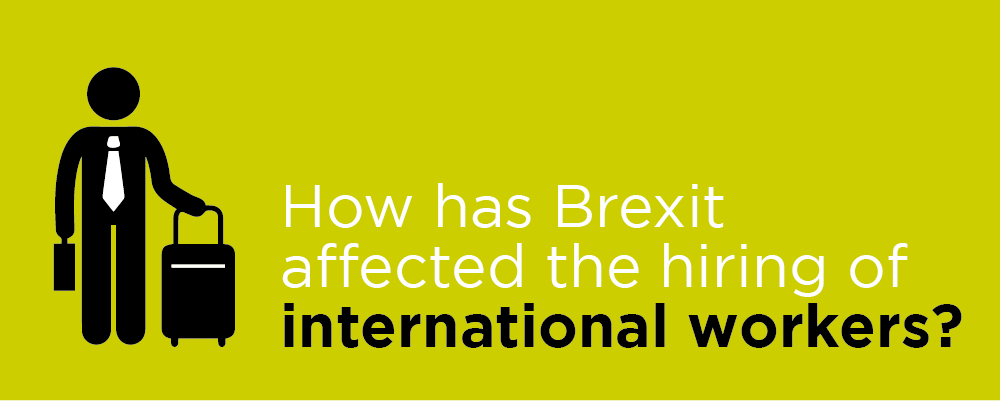- Basildon 01268244144
- Chelmsford 01245453800
- Colchester 01206217300
- London 020 4586 1280

All employers must undertake right to work checks as it is unlawful to employ a worker who does not have permission to work in the UK (Immigration, Asylum and Nationality Act 2006 (IANA) section 15(1)).
An employer who inadvertently employs a person illegally will be given a notice of a civil penalty (a maximum of £20,000 for each illegal worker employed). However, checking whether a person is entitled to work in the UK, in the prescribed manner, will excuse the employer from responsibility to pay this penalty (IANA section 15(2)).
Brexit has resulted in changes being made to the way some workers can prove their right to work in the UK. Before Brexit, workers of EU origin could prove their right to work in the UK by having an EU passport or national identity card. After Brexit this is no longer the case and such workers now need to apply under the EU Settlement Scheme (EUSS) or could apply for a visa such as the Skilled Worker visa.
The EU Settlement Scheme
The EU Settlement Scheme (EUSS) introduced a new immigration category allowing EEA citizens and their family members to protect their entitlements, including the right to work in the UK. In most cases they had until 30th June 2021 to apply (and can apply after this date where there are reasonable grounds). Broadly, those who have resided in the UK for a continuous period of five years which commenced prior to 31st December 2020 were able to apply for indefinite leave to remain (also known as settled status). Those who had resided in the UK for less than 5 years were able to apply for limited leave to remain (also known as pre-settled status) allowing them to accrue the relevant qualifying period to be granted settled status in the UK.
Individuals with a grant of status under the EUSS should be able to demonstrate their right to work using the Home Office’s online right to work service. This will also include where the individual has been issued with a digital Certificate of Application by the Home Office, whilst their application is pending, and also if they have a pending administrative review or appeal.
All EEA citizens arriving in the UK from 31st December 2020 (who are not otherwise in scope of the EUSS having applied for settled or pre-settled status) are subject to the points-based immigration system. They must apply for immigration status in the UK in the same way as other overseas nationals.
When does an employer need a sponsor licence?
If the employer wishes to employ someone to work for them from outside the UK, they will usually need a sponsor licence.
Sponsoring someone does not guarantee that they will get a visa to work in the UK, that is a separate application that the worker needs to make after securing a job offer from a licenced employer.
How to apply for a sponsor licence
You need to be eligible:
1. Have no unspent criminal convictions.
2. Not had a sponsor licence revoked in the last 12 months.
You need appropriate systems in place to monitor sponsored employees and people to manage sponsorship in your business.
The job that you are wanting to sponsor a worker to do, must have a suitable rate of pay and skill level, or meet the other criteria needed for the visa.
The above needs to be resolved before you make your application online as you need to send your supporting documents within 5 days of making the application online so have little time to address such issues after the application has been submitted.
The UK Visas and Immigration (UKVI) will review your application form and supporting documents. They may also visit your business to make sure you are trustworthy and capable of carrying out your duties.
You will need to pay the appropriate licence fee. For an individual worker this can range from £536 to £1476 dependent on the size of your organisation.
Who qualifies for a Skilled Worker visa?
To qualify for a Skilled Worker visa, the worker must first have a confirmed job offer before an application for the visa is made. The worker must:
1. Work for a UK employer that’s been approved by the Home Office – the employer will need a sponsor licence issued by the Home Office
2. Have a certificate of sponsorship from their employer with information about the role they have been offered in the UK
3. Undertake a job that is on a list of eligible occupations
4. Be paid a minimum salary – how much depends on the type of work undertaken
5. Be able to speak, read, write and understand English.
The visa can last for up to 5 years before it needs to be extended.
There is an application fee and a separate healthcare surcharge fee with the latter being payable for each year of the visa.
For advice on any of the issues raised in this article or indeed on any employment related matter, please contact a member of the BLHR and Employment Team who will be happy to assist you.



Comments